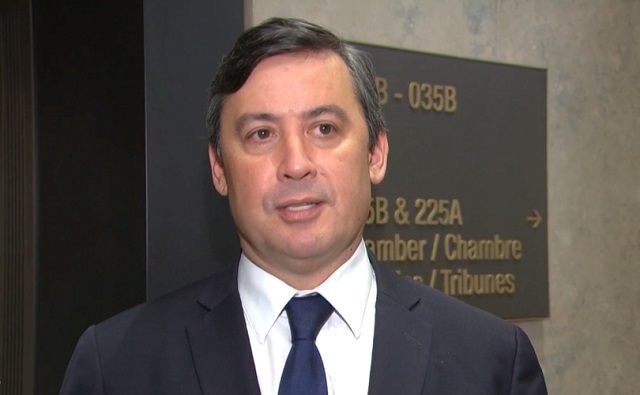Community
The Mustard Seed Hosts PCN Women’s Fun Run this Saturday (May 12)

Red Deer PCN Women’s Fun Run Helps Feed Children in Need
Red Deer, AB. – On Saturday, May 12, 2018 more than 1,200 women of all ages will come together at the Red Deer PCN Women’s Fun Run to raise funds in support of The Mustard Seed’s School Lunch Program in Red Deer. All proceeds go to The Mustard Seed.
“The Mustard Seed cares deeply about women’s health; so it is a great partnership in an event that is so focused on healthy living for women of all ages, and about bringing people together in our community,“ says Byron Bradley, Director of Central Alberta for The Mustard Seed. “We were so thankful for the $20,653 that was raised in 2017. Last Year, with the generosity of Red Deerians, we were able to serve over 54,000 lunches to children in Red Deer.”
The run has four different events with options for all ages and abilities, a Health, Wellness and Gift Expo with more 70 vendors, more than 100 prizes, and a variety of family fun and interactive actives. Activities include the Stantec Kidz Zone, the State & Main coffee lounge, The Mustard Seed concession, power wheel gator rides for the kids courtesy of Deermart, complimentary massages from Alberta Institute of Massage, games from Mastermind Toys, manicures, pedicures, dry cuts and hair fun from MC College and much more.
Over $10,000 in prizes
Garrett Scott and Kipp Scott GMC Cadillac Buick have donated a 4 month (8,000Km) lease on a brand new Cadillac ATS-V as the grand prize for fundraisers. The 10 participants who raise the most money will be entered into a draw to win. The grand prize includes $500 towards insurance expenses for the car from The Co-operators Insurance and a $500 gift certificate from Clowes Jewellers.
The Red Deer Catholic School districts and SUBWAY® have joined forces for the SUBWAY® School Challenge, to encourage our school age girls to embrace fitness and a healthy lifestyle. The school with the highest percentage of participants wins a SUBWAY® celebration party.
Many local businesses have also donated amazing draw prizes, swag bag stuffers and finishers’ prizes for our participants, including more than 100 age group awards totaling more than $4000, courtesy of One Tooth Active Wear.
“We are so thankful for the awareness that this amazing event brings to our work, and for the opportunity to engage and partner with so many supporting businesses and community groups. We are looking forward to the event on May 12, 2018 and hope to meet many new people from across Central Alberta,” says Byron Bradley.
In partnership with the Red Deer Primary Care Network, the Women’s Fun Run has had nearly 6000 participants cross the finish line and has donated more than $50,000.00 to local charities. Their goal is to inspire women and girls to get out, be more active and to give back to their community.
About The Mustard Seed:
The Mustard Seed is a Christian non-profit organization that has been caring for men and women experiencing poverty and homelessness since 1984. The Mustard Seed delivers basic services, housing and employment programs to those in need and partners with the community to address the root causes of poverty. https://theseed.ca/
For more stories visit Todayville.com
Community
SPARC Red Deer – Caring Adult Nominations open now!

Red Deer community let’s give a round of applause to the incredible adults shaping the future of our kids. Whether they’re a coach, neighbour, teacher, mentor, instructor, or someone special, we want to know about them!
Tell us the inspiring story of how your nominee is helping kids grow up great. We will honour the first 100 local nominees for their outstanding contributions to youth development. It’s time to highlight those who consistently go above and beyond!
To nominate, visit Events (sparcreddeer.ca)

Addictions
‘Harm Reduction’ is killing B.C.’s addicts. There’s got to be a better way

From the Frontier Centre for Public Policy
B.C. recently decriminalized the possession of small amounts of illicit drugs. The resulting explosion of addicts using drugs in public spaces, including parks and playgrounds, recently led the province’s NDP government to attempt to backtrack on this policy
Fuelled by the deadly manufactured opioid fentanyl, Canada’s national drug overdose rate stood at 19.3 people per 100,000 in 2022, a shockingly high number when compared to the European Union’s rate of just 1.8. But national statistics hide considerable geographic variation. British Columbia and Alberta together account for only a quarter of Canada’s population yet nearly half of all opioid deaths. B.C.’s 2022 death rate of 45.2/100,000 is more than double the national average, with Alberta close behind at 33.3/100,00.
In response to the drug crisis, Canada’s two western-most provinces have taken markedly divergent approaches, and in doing so have created a natural experiment with national implications.
B.C. has emphasized harm reduction, which seeks to eliminate the damaging effects of illicit drugs without actually removing them from the equation. The strategy focuses on creating access to clean drugs and includes such measures as “safe” injection sites, needle exchange programs, crack-pipe giveaways and even drug-dispensing vending machines. The approach goes so far as to distribute drugs like heroin and cocaine free of charge in the hope addicts will no longer be tempted by potentially tainted street drugs and may eventually seek help.
But safe-supply policies create many unexpected consequences. A National Post investigation found, for example, that government-supplied hydromorphone pills handed out to addicts in Vancouver are often re-sold on the street to other addicts. The sellers then use the money to purchase a street drug that provides a better high — namely, fentanyl.
Doubling down on safe supply, B.C. recently decriminalized the possession of small amounts of illicit drugs. The resulting explosion of addicts using drugs in public spaces, including parks and playgrounds, recently led the province’s NDP government to attempt to backtrack on this policy — though for now that effort has been stymied by the courts.
According to Vancouver city councillor Brian Montague, “The stats tell us that harm reduction isn’t working.” In an interview, he calls decriminalization “a disaster” and proposes a policy shift that recognizes the connection between mental illness and addiction. The province, he says, needs “massive numbers of beds in treatment facilities that deal with both addictions and long-term mental health problems (plus) access to free counselling and housing.”
In fact, Montague’s wish is coming true — one province east, in Alberta. Since the United Conservative Party was elected in 2019, Alberta has been transforming its drug addiction policy away from harm reduction and towards publicly-funded treatment and recovery efforts.
Instead of offering safe-injection sites and free drugs, Alberta is building a network of 10 therapeutic communities across the province where patients can stay for up to a year, receiving therapy and medical treatment and developing skills that will enable them to build a life outside the drug culture. All for free. The province’s first two new recovery centres opened last year in Lethbridge and Red Deer. There are currently over 29,000 addiction treatment spaces in the province.
This treatment-based strategy is in large part the work of Marshall Smith, current chief of staff to Alberta’s premier and a former addict himself, whose life story is a testament to the importance of treatment and recovery.
The sharply contrasting policies of B.C. and Alberta allow a comparison of what works and what doesn’t. A first, tentative report card on this natural experiment was produced last year in a study from Stanford University’s network on addiction policy (SNAP). Noting “a lack of policy innovation in B.C.,” where harm reduction has become the dominant policy approach, the report argues that in fact “Alberta is currently experiencing a reduction in key addiction-related harms.” But it concludes that “Canada overall, and B.C. in particular, is not yet showing the progress that the public and those impacted by drug addiction deserve.”
The report is admittedly an early analysis of these two contrasting approaches. Most of Alberta’s recovery homes are still under construction, and B.C.’s decriminalization policy is only a year old. And since the report was published, opioid death rates have inched higher in both provinces.
Still, the early returns do seem to favour Alberta’s approach. That should be regarded as good news. Society certainly has an obligation to try to help drug users. But that duty must involve more than offering addicts free drugs. Addicted people need treatment so they can kick their potentially deadly habit and go on to live healthy, meaningful lives. Dignity comes from a life of purpose and self-control, not a government-funded fix.
Susan Martinuk is a senior fellow at the Frontier Centre for Public Policy and author of the 2021 book Patients at Risk: Exposing Canada’s Health Care Crisis. A longer version of this article recently appeared at C2CJournal.ca.
-

 COVID-196 hours ago
COVID-196 hours agoCDC Quietly Admits to Covid Policy Failures
-

 COVID-199 hours ago
COVID-199 hours agoJapanese study shows disturbing increase in cancer related deaths during the Covid pandemic
-

 Great Reset4 hours ago
Great Reset4 hours agoClimate expert warns against extreme ‘weather porn’ from alarmists pushing ‘draconian’ policies
-

 Alberta2 days ago
Alberta2 days agoDanielle Smith warns arsonists who start wildfires in Alberta that they will be held accountable
-

 National2 days ago
National2 days agoCanada’s Governor General slammed for hosting partisan event promoting Trudeau’s ‘hate speech’ bill
-

 Economy1 day ago
Economy1 day agoExtreme Weather and Climate Change
-

 Bruce Dowbiggin1 day ago
Bruce Dowbiggin1 day agoWhy Are Canadian Mayors So Far Left And Out Of Touch?
-

 International1 day ago
International1 day agoTelegram founder tells Tucker Carlson that US intel agents tried to spy on user messages




